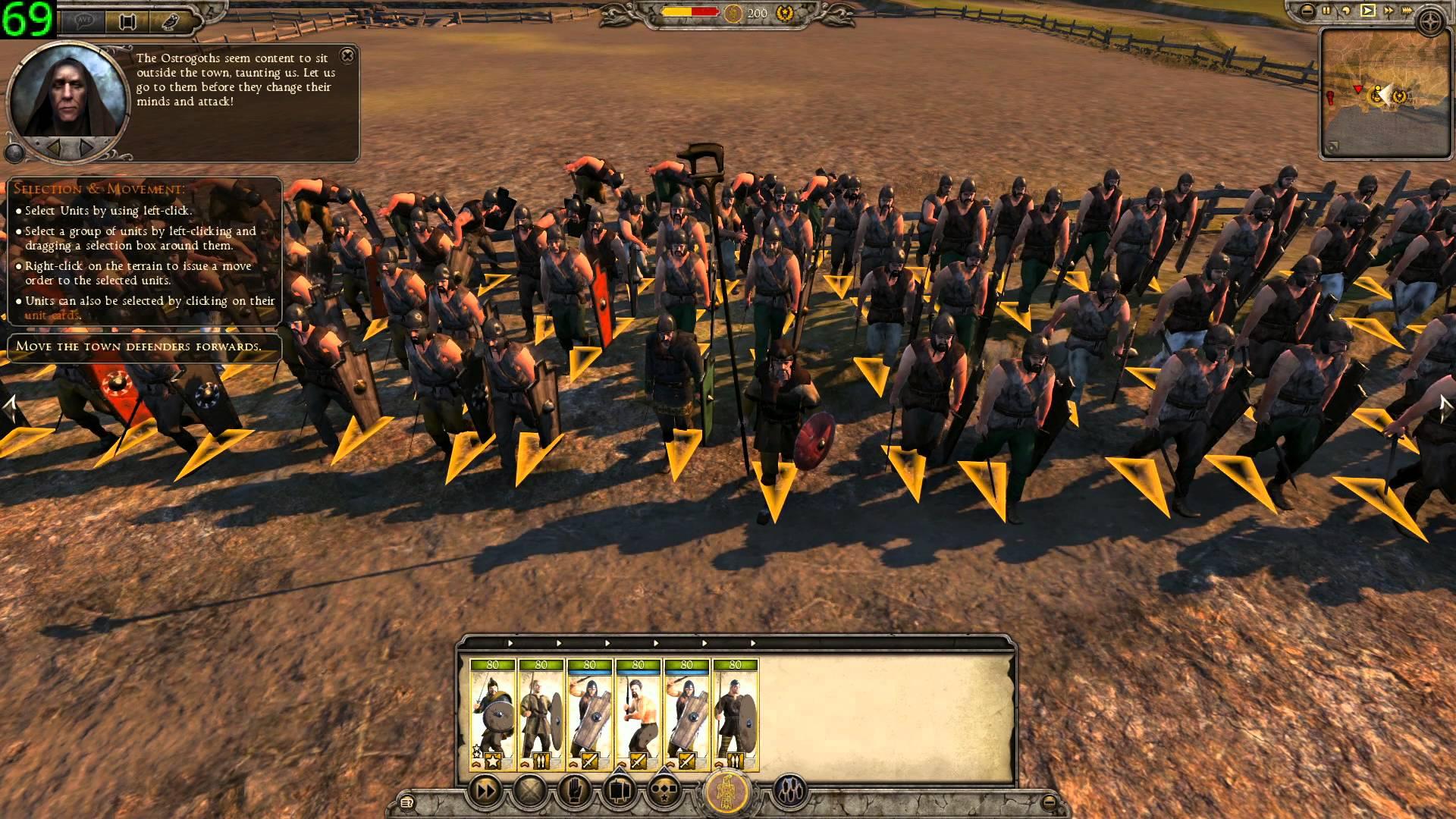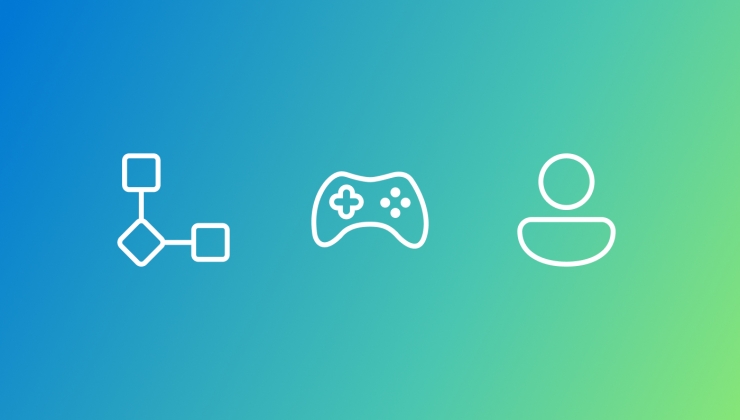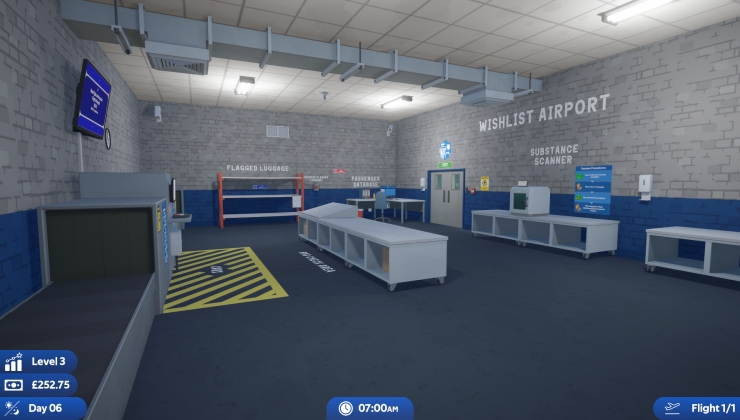At times Linux ports are lacking quite a bit, but some like Total War: ATTILA actually run pretty damn close to Windows performance.
See for yourself:

The author said this about the AMD results:
What do you think to the performance of Total War: ATTILA on SteamOS/Linux?
See for yourself:

YouTube videos require cookies, you must accept their cookies to view. View cookie preferences.
Direct Link
Direct Link
The author said this about the AMD results:
QuoteThe AMD results are somewhat misleading, I must confess.
I mean there's nothing wrong with the benchmarks, but the actual gameplay using the driver listed in the description was very choppy. The previous driver had no choppiness but got lower results, so not good results for AMD users anyway.
What do you think to the performance of Total War: ATTILA on SteamOS/Linux?
Some you may have missed, popular articles from the last month:
All posts need to follow our rules. For users logged in: please hit the Report Flag icon on any post that breaks the rules or contains illegal / harmful content. Guest readers can email us for any issues.
Still not good enough - drivers should do better and ports should be of higher quality. 20-30% performance difference is way too much. Only reason it doesn't seem that big of a difference is that at extreme quality 30 percent are about 9-10 frames. Call me entitled, but until the performance difference drops to 10% or less, devs should be pestered to do better. Actually scratch that - you can't be called entitled for wanting your money's worth.
1 Likes, Who?
Additionally, isn't ATTILA performance on Windows pretty abysmal anyway? It's not saying much when you can run as fast as the slowest fat guy on the track.
0 Likes
I think that, as much as we may be disappointed to see good ports still getting a 20 to 30% performance hit when compared to Windows running DirectX, we may as well note that performance running OpenGL is way better on Linux. So the real problem is not drivers or the efforts put in the port, but the fact that games are ported from an API to the other.
There's nothing new in these facts actually, and there's no wonder why so many people are waiting for Vulkan so eagerly, as it's the best chance we've got to avoid such annoyance in the future - but that's only if Vulkan actually succeeds as a reference cross-platform API.
Game engines have always been developed with technical challenges in mind, and several tricks are used in order to render what the devs have on their minds on actual computers, some of which rely for a great part on the API it's been originally coded. In some cases like the famous Carmack's Reverse, it relies on OpenGL and we get sometimes better performance than Windows, but games we get to play nowadays rely heavily on DX9 or DX11 technologies and that's why, among other things, many games are having a hard time with multi-threading on Linux.
The reason I am writing all these things you most probably already know is that some comments seem misleading to me. Yes, I was one of those who were very unhappy with the Witcher 2 port when it was released for example, but the game was actually unplayable.
The 20 to 30% performance hit you see here has nothing to do with companies not working hard enough to bring a decent gaming experience to Linux users. It has nothing to do with being entitled to anything. It has to do with technical constraints nobody can do anything about until multiplatform development and/or Vulkan becomes attractive enough for developers.
That's what happens in that case:
https://www.youtube.com/watch?v=Eab2UI1Iq2w
Last edited by omer666 on 20 Feb 2016 at 1:03 am UTC
There's nothing new in these facts actually, and there's no wonder why so many people are waiting for Vulkan so eagerly, as it's the best chance we've got to avoid such annoyance in the future - but that's only if Vulkan actually succeeds as a reference cross-platform API.
Game engines have always been developed with technical challenges in mind, and several tricks are used in order to render what the devs have on their minds on actual computers, some of which rely for a great part on the API it's been originally coded. In some cases like the famous Carmack's Reverse, it relies on OpenGL and we get sometimes better performance than Windows, but games we get to play nowadays rely heavily on DX9 or DX11 technologies and that's why, among other things, many games are having a hard time with multi-threading on Linux.
The reason I am writing all these things you most probably already know is that some comments seem misleading to me. Yes, I was one of those who were very unhappy with the Witcher 2 port when it was released for example, but the game was actually unplayable.
The 20 to 30% performance hit you see here has nothing to do with companies not working hard enough to bring a decent gaming experience to Linux users. It has nothing to do with being entitled to anything. It has to do with technical constraints nobody can do anything about until multiplatform development and/or Vulkan becomes attractive enough for developers.
That's what happens in that case:
https://www.youtube.com/watch?v=Eab2UI1Iq2w
Last edited by omer666 on 20 Feb 2016 at 1:03 am UTC
6 Likes, Who?
@SuperTux
True, the benchmark is a killer, it really throws everything in and as you can see even in Windows DX runs below 60 FPS.
The gameplay itself though is not as bad as the benchmark suggests. If you watch the second part of the video you can see more than enough FPS at more than decent settings.
Last edited by dubigrasu on 20 Feb 2016 at 2:02 am UTC
True, the benchmark is a killer, it really throws everything in and as you can see even in Windows DX runs below 60 FPS.
The gameplay itself though is not as bad as the benchmark suggests. If you watch the second part of the video you can see more than enough FPS at more than decent settings.
Last edited by dubigrasu on 20 Feb 2016 at 2:02 am UTC
2 Likes, Who?
"I think that, as much as we may be disappointed to see good ports still getting a 20 to 30% performance hit when compared to Windows running DirectX, we may as well note that performance running OpenGL is way better on Linux."
Those are simply not good ports. Good ports performing equal with their DX counterparts, sadly those ports are the minority.
Those are simply not good ports. Good ports performing equal with their DX counterparts, sadly those ports are the minority.
0 Likes
Those are simply not good ports. Good ports performing equal with their DX counterparts, sadly those ports are the minority.Looks like you didn't read the entire post...
Last edited by omer666 on 20 Feb 2016 at 1:47 am UTC
3 Likes, Who?
The 20 to 30% performance hit you see here has nothing to do with companies not working hard enough to bring a decent gaming experience to Linux users. It has nothing to do with being entitled to anything. It has to do with technical constraints nobody can do anything about until multiplatform development and/or Vulkan becomes attractive enough for developers.
That's what happens in that case:
https://www.youtube.com/watch?v=Eab2UI1Iq2w
That is hardly the best of example. It's been some time now but I recall that x4 vs x8 SSAA is far from the only difference between the Windows and Linux version of the game. I have a clear memory of seeing an .ini file comparison with some features on Linux either turned off or missing by default. Also [this](http://arstechnica.com/gaming/2015/11/ars-benchmarks-show-significant-performance-hit-for-steamos-gaming/)
0 Likes
As far as I know, there's no 8x SSAA on Windows, it wouldn't run on any machine anyway. The only difference I know of is the lack of tessellation and FXAA that is either very light or not present at all. I'd be interested if you could share this comparison.The 20 to 30% performance hit you see here has nothing to do with companies not working hard enough to bring a decent gaming experience to Linux users. It has nothing to do with being entitled to anything. It has to do with technical constraints nobody can do anything about until multiplatform development and/or Vulkan becomes attractive enough for developers.
That's what happens in that case:
https://www.youtube.com/watch?v=Eab2UI1Iq2w
That is hardly the best of example. It's been some time now but I recall that x4 vs x8 SSAA is far from the only difference between the Windows and Linux version of the game. I have a clear memory of seeing an .ini file comparison with some features on Linux either turned off or missing by default. Also [this](http://arstechnica.com/gaming/2015/11/ars-benchmarks-show-significant-performance-hit-for-steamos-gaming/)
Still, Metro Redux runs very well on Linux and seems to be more stable.
About Ars Technica, well it's been extensively discussed in here and it's clear they didn't understand the technical facts I mentioned earlier. On a side note I would also add that testing this on an Intel Pentium is clearly suboptimal, but that's only my opinion.
2 Likes, Who?
Coming to this party late but I downloaded it during the free play weekend and gave it a whirl. I have a conky overlay that stays on top even when gaming so it shows me some pretty useful information (IMHO) about what's happening behind the scenes in games like this. My GTX960 sat around 40% usage, and I rarely had more than 1 cpu core registering much usage. It wasn't even pegging out 1 core constantly either. It's almost like they have an internal frame limiter that isn't working like it's supposed to, causnig fluctuations (in my case) from 35-55 fps.
0 Likes








 How to set, change and reset your SteamOS / Steam Deck desktop sudo password
How to set, change and reset your SteamOS / Steam Deck desktop sudo password How to set up Decky Loader on Steam Deck / SteamOS for easy plugins
How to set up Decky Loader on Steam Deck / SteamOS for easy plugins
See more from me